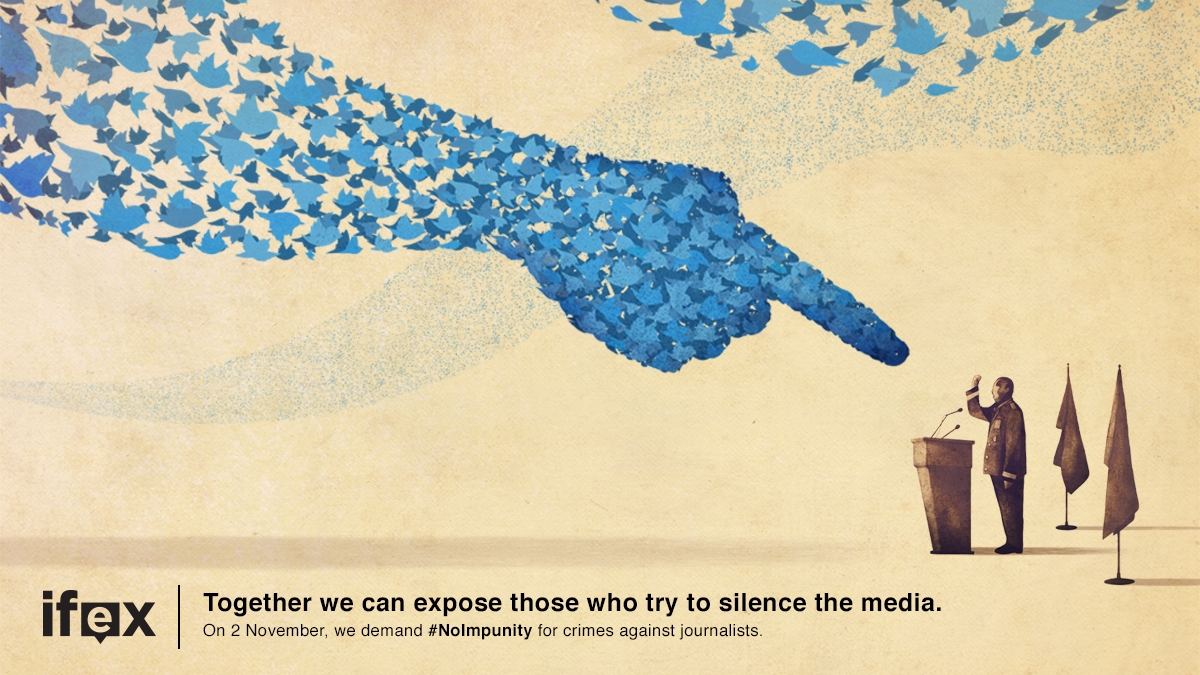MISA Zimbabwe Concerned about Increased Attacks on Journalists, Calls on Government to End to Impunity for Crimes Against Journalists
As the world commemorates the International Day to End Impunity for Crimes Against Journalists on 2 November, MISA Zimbabwe is greatly concerned with the upsurge in the number of cases involving media freedom violations in Zimbabwe.
Crimes against journalists spiked during the pre-election and post-election period while a total of 36 violations have been recorded to date since the beginning of the year. It is regrettable that State organs were the perpetrators of the majority of the violations recorded by MISA Zimbabwe.
Some of these crimes were of a grave nature and involved the injury of journalists as witnessed when some journalists were assaulted while covering demonstrations that broke out in Harare on 1 August 2018.
To date, there have been no arrests of the perpetrators of these acts of violence.
Zimbabwe may not have recorded the killing of any journalists, but impunity for crimes against journalists still goes beyond murders and assassinations. Impunity is evident even for crimes such as torture, arbitrary detention, harassment, and intimidation of journalists.
Journalists face retribution for their work that sometimes uncovers public scandals, acts of corruption and general misgovernance. A recent example of the dangers journalists live with is the killing of Saudi journalist Jamal Khasshogi in October this year at the Saudi Arabian Consulate in Turkey.
It is believed that Khasshogi was assassinated for his criticism of the Saudi government. Unfortunately, his death is not an isolated incident as the United Nations estimates that globally, 88 journalists were killed for their work between January and October 2018.
While some of the violations or crimes against journalists, may appear to be minor infractions, they are nonetheless still crimes and for that reason, must be investigated, and where appropriate, prosecuted accordingly.
The State has a constitutional duty to promote and protect fundamental rights enshrined in Zimbabwe’s Constitution. These rights include the right to access information, the right to free expression and media freedoms in general.
The State through its various arms and agencies also has a responsibility to investigate allegations of crimes against journalists and to ensure that such crimes are duly prosecuted.
The Zimbabwean government cannot fulfil its commitment to uphold media freedoms when some sections of the same government continue perpetrating crimes against journalists. This inability to hold perpetrators of crimes against journalists is what leads to impunity with crimes against journalists largely going unpunished.
Recommendations on ending impunity
To end this impunity, the United Nations has put in place a Plan of action for the safety of journalists. This plan of action contains three fundamental principles that can be summarised as the Three Ps.
The first ‘P’ refers to Policies of protection that governments must put in place to promote journalist’ safety. Such policies come in different forms and may include government statements condemning crimes against journalists and government policy frameworks that put measures that promote the safety of journalists.
The second ‘P’ refers to the Protection of journalists in moments of immediate crisis. These are usually premeditated mechanisms to assist journalists during states of emergency. Such interventions can be sponsored by either the State or civil organisations. For example, MISA Zimbabwe has a mobile phone Applications such as the JournoSOS App and the Media Defence Fund to provide emergency assistance to distressed journalists.
Lastly, there should be Procurement of justice, which simply means that alleged crimes against journalists are investigated and prosecuted as seriously as any other crimes. The United Nations strongly believes that the implementation of these three fundamental principles will greatly reduce impunity for crimes against journalists.
//END




